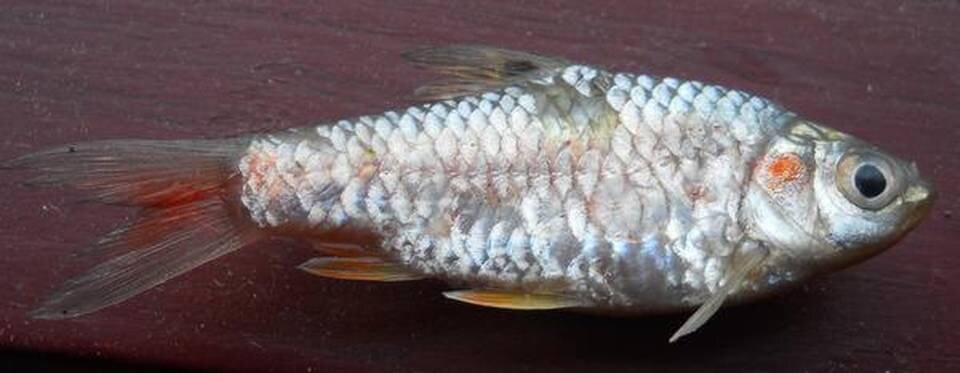Punitus Sanctus: New Freshwater Fish | 26 May 2020
Why in News
Recently, Puntius Sanctus, a new freshwater fish, has been found in Velankanni, Tamil Nadu. It has been found in a small waterbody.
- The fish has been identified and named by the Department of Zoology, BJM Government College in Kollam. Sanctus means holy (pilgrim town) in Latin.
- Species of Puntius are known from India mainly from the drainages of the Western and Eastern Ghats, as well as the Eastern Himalayas.
Key Points
- Puntius Genus:
- The genus shows great species richness in Kerala and Tamil Nadu.
- The Puntius species are known locally as Paral in kerala and Kende in Tamil Nadu.
- It belongs to the family ‘Cyprinidae’.
- Puntius Sanctus:
- It is a silver-hued fish. The species is small in size and grows to a length of 7 cm.
- It is different from other species.
- It has a protractible (extended) mouth, a pair of maxillary barbels (a sensory organ near the snout).
- It bears lateral line scales and pre-dorsal scales.
- The lateral line scales are found within the dermis i.e. under the skin of a fish and usually have sense organs.
- The dorsal scale row in a fish consists of a series of deep scales devoid of spines.
- Cyprinidae:
- It is the family of freshwater fish, collectively called cyprinids, that includes the minnows, goldfish, bitterlings, barbs, and carps.
- It ranges from small aquarium sized species to huge fish.
- Freshwater fish are those that spend some or all of their lives in freshwater, such as rivers and lakes, with a salinity of less than 1.05%. E.g. Rohu, Katla, Hilsa etc.
- The new fish has been deposited in the Zoological Survey of India at Pune.
- It has also been registered with Zoo Bank of the International Commission of Zoological Nomenclature, the official authority for naming animals.
Zoological Survey of India
- It is a subordinate organization of the Ministry of Environment, Forest and Climate Change and was established in 1916.
- It is a national centre for faunistic survey and exploration of the resources leading to the advancement of knowledge on the exceptionally rich faunal diversity of the country.
- It has its headquarters at Kolkata and 16 regional stations located in different geographic locations of the country.
International Commission of Zoological Nomenclature
- It regulates a uniform system of zoological nomenclature ensuring that every animal has a unique and universally accepted scientific name.
- It creates and revises the International Code of Zoological Nomenclature.
- It is based in the Lee Kong Chian Natural History Museum, National University of Singapore.
